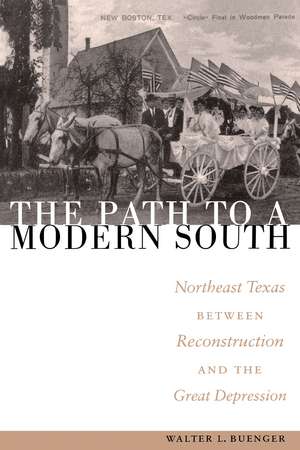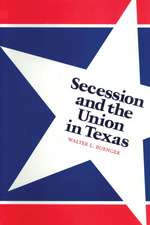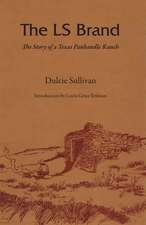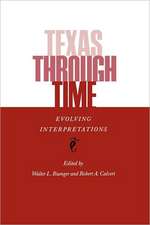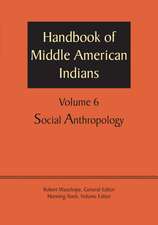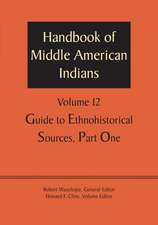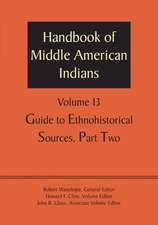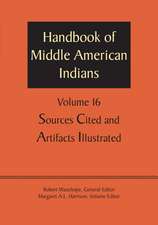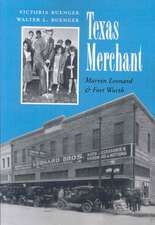The Path to a Modern South: Northeast Texas between Reconstruction and the Great Depression
Autor Walter L. Buengeren Limba Engleză Paperback – apr 2001
Winner, Texas State Historical Association Coral H. Tullis Memorial Award for best book on Texas history, 2001
Federal New Deal programs of the 1930s and World War II are often credited for transforming the South, including Texas, from a poverty-stricken region mired in Confederate mythology into a more modern and economically prosperous part of the United States. By contrast, this history of Northeast Texas, one of the most culturally southern areas of the state, offers persuasive evidence that political, economic, and social modernization began long before the 1930s and prepared Texans to take advantage of the opportunities presented by the New Deal and World War II.
Walter L. Buenger draws on extensive primary research to tell the story of change in Northeast Texas from 1887 to 1930. Moving beyond previous, more narrowly focused studies of the South, he traces and interconnects the significant changes that occurred in politics, race relations, business and the economy, and women's roles. He also reveals how altered memories of the past and the emergence of a stronger identification with Texas history affected all facets of life in Northeast Texas.
Preț: 277.16 lei
Nou
Puncte Express: 416
Preț estimativ în valută:
53.04€ • 55.06$ • 44.23£
53.04€ • 55.06$ • 44.23£
Carte tipărită la comandă
Livrare economică 22 martie-05 aprilie
Preluare comenzi: 021 569.72.76
Specificații
ISBN-13: 9780292708884
ISBN-10: 0292708882
Pagini: 368
Dimensiuni: 152 x 229 x 25 mm
Greutate: 0.45 kg
Editura: University of Texas Press
Colecția University of Texas Press
ISBN-10: 0292708882
Pagini: 368
Dimensiuni: 152 x 229 x 25 mm
Greutate: 0.45 kg
Editura: University of Texas Press
Colecția University of Texas Press
Notă biografică
Walter L. Buenger is Professor of History at Texas A&M University.
Cuprins
- Preface
- Introduction: Seeing the Whole by Spotting a Part
- Part One: Foundations
- 1. The Fluid and the Constant: Persistent Factionalism, Lynching, and Reform, 1887-1896
- 2. Competition, Innovation, and a Changing Economy, 1897-1914
- Part Two: Transformations
- 3. A New Political Order, 1897-1912
- 4. "Old Ideas" and "Improved Conditions": Law, Custom, and Memory, 1902-1914
- 5. An Economic Roller Coaster, 1914-1930
- 6. World War I and a Shifting Culture
- 7. Women, the Ku Klux Klan, and Factional Identity, 1920-1927
- Part Three: Modernity
- 8. Politics and Culture: 1928
- Epilogue: Stars and Bars and the Lone Star: Memory, Texas, and the South
- Notes
- A Comment on Primary Sources
- Index
Descriere
The forces that turned Northeast Texas from a poverty-stricken region into a more economically prosperous area.
